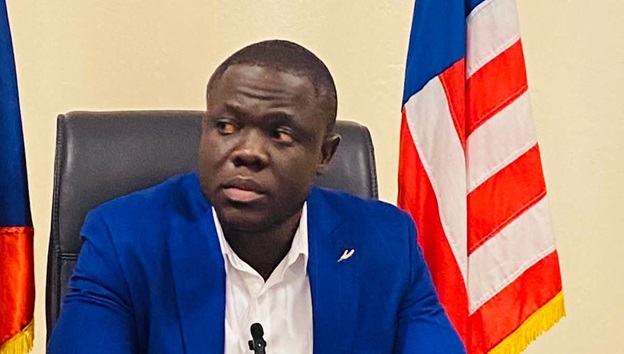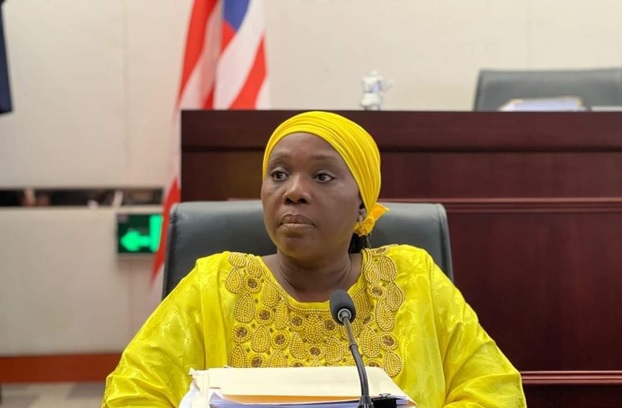MONROVIA – On Friday, May 24, during the ongoing three-day Cabinet retreat at the Ellen Johnson Sirleaf Ministerial Complex in Congo Town, Monrovia, Madam Mamaka Bility, the Minister of State Without Portfolio, announced a significant development. The Unity Party-led administration under President Joseph Nyuma Boakai has procured 285 earth-moving machines for infrastructure development. This announcement has sparked a heated debate among government officials, with Senator Cllr. Augustine S. Chea of Sinoe County raising serious questions about the procurement process.
Senator Chea expressed his concerns in a public statement, following a newscast by ELBC that reported the government’s acquisition of the equipment. “Laudable! But while that is good news, we must celebrate with caution,” Senator Chea wrote. He questioned the transparency and accountability of the procurement process, noting the lack of information about the source of funding for these machines, which are worth millions of USD.
Chea highlighted that there was no mention of this procurement in the national budget, no loan agreement, and no known grant or donation. He emphasized that if the equipment were donated, the President is obliged to disclose the sources to the Liberian people. “Disappointingly, some of my Senate colleagues don’t think transparency and accountability matter here; some argue that the equipment will make our highways pliable, so nothing else matters,” Chea lamented. He pledged that the Senate would uphold its oversight responsibilities and ensure that the Executive is held accountable.
In sharp contrast, Vandalark R. Patricks, a political commentator, criticized Senator Chea’s stance. Patricks argued that the National Legislature itself lacks credibility in matters of financial management and should refrain from making noise about the President’s procurement. He pointed out that the Legislature recently allocated $13.2 million in the National Budget for “Legislative Projects,” which are to be exclusively managed by them, undermining the Local Government Act of 2018.
Patricks suggested that instead of opposing the procurement, lawmakers should seek clarification from the presidency. “What if it’s a donation?” he asked. Patricks accused the legislators of having a history of dubious dealings, such as accepting vehicles from companies to pass certain laws, which undermines their moral authority to question the President’s actions now.
The controversy underscores a broader issue of trust and accountability in the Liberian government. Senator Chea’s concerns reflect a demand for transparency in government dealings, especially in significant procurements that impact the country’s development. Meanwhile, Patricks’ reaction reveals a sentiment of skepticism towards the Legislature’s integrity, suggesting that their criticisms may be hypocritical.
The debate also highlights the need for a robust oversight mechanism to ensure that all branches of government adhere to principles of transparency and accountability. The procurement of such a large number of earth-moving machines, if done transparently, could significantly boost Liberia’s infrastructure development, particularly in road construction, which is crucial for the country’s economic growth.
As the Senate prepares to investigate this procurement, the public remains divided. Some support Senator Chea’s call for accountability, while others echo Patricks’ sentiment that lawmakers should focus on constructive engagement with the Executive to verify the facts.
The outcome of this controversy could have far-reaching implications for the Unity Party administration and its relationship with the Legislature. It may also influence public perception of both branches of government, either reinforcing or undermining their credibility.
The procurement of 285 earth-moving machines by the Unity Party administration has ignited a debate about transparency, accountability, and the integrity of Liberia’s governmental institutions. As the investigation proceeds, the need for clear communication and adherence to legal and ethical standards will be crucial in resolving the issue and advancing the country’s development goals.







